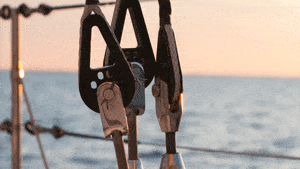On Wednesday, President Obama announced a major change in U.S. policy toward our neighbor to the south, including opening an embassy in Havana and opening trade and travel to the country. The policy change was prompted by the release of Alan Gross, a U.S. citizen who was imprisoned there for five years.
“With the changes I’m announcing today, it will be easy for Americans to travel to Cuba, and Americans will be able to use debit cards on the island,” said President Obama in a televised address. What does this mean for cruisers who are U.S. citizens?
If these new policies take root and the embargo is lifted, we will be able to freely and legally enjoy Cuban waters (and cigars), as our Canadian cousins – and just about everyone else – have been able to do all along.
Havana is a mere 90 nm jump from Key West.
If you’re thinking “let’s head over there this winter,” you may be jumping the gun. “Licenses” are required for a U.S. Citizen to legally travel to Cuba. General licenses are granted for specific family, business, or diplomatic needs. Other licenses are currently granted on a case-by-case basis, but will be replaced by “general” licenses which will no longer need “case-by-case” scrutiny (for educational exchange, public performances, workshops and athletic competitions, human rights and humanitarian work, private foundations and institutes, and a few other purposes – groups, usually sponsored by universities, have used these licenses for the last several years. The constant patrol of the U.S. Coast Guard a dozen miles off the Cuban coast ended about the same time, allowing American cruisers to sneak over there with less of a chance of getting caught).
However, a complete lifting of travel restrictions will require an act of Congress.
If and when it happens, the opening of Cuban travel to U.S. citizens may be a boon to the economy of the island nation – but will Cuba’s unique charm be lost forever?
Courtesy of www.waterwayguide.com











